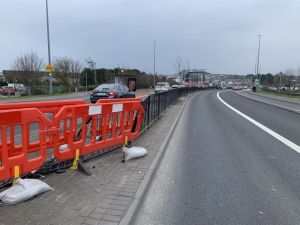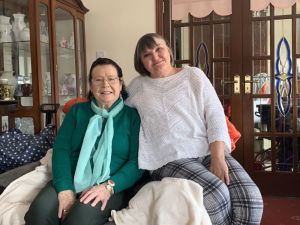“Two wrongs never make a right”: University of Galway professor’s insight on Israel-Hamas War

By Chloe Richardson
On the 7th of October, the Palestinian militant group Hamas launched a massive operation into Israeli territory resulting in the deaths of at least 1,300 people. Israeli forces launched airstrike attacks in retaliation. This has resulted in the deaths of over 1,400 people in the Gaza Strip. A ground offensive mounted by Israel is expected to soon follow.
What is the context of this conflict, and how did it escalate to this point? University of Galway Professor Ray Murphy from the Irish Centre for Human Rights, and a former UN Peacekeeper in Lebanon shares his insight to the devastating violence we are currently witnessing.
*This interview has been edited for length and clarity.
Q. For those of us who might not be as familiar with this conflict, what insights can you give on the situation at hand?
A. I don’t recall the situation being as serious, in my lifetime, as I would deem it to be now. I think that the threat to the long term peace in the area is greater than ever before. It was predictable that there would be some kind of response to the increased, I suppose, persecution and oppression of the Palestinians under the current Israeli government.
One of the things that surprised me over the last number of months was that there hadn’t been a response from Hamas. That was commented on by many Palestinians. Now I realise that over the last year or two, Hamas had been planning a major operation and they deliberately kept quiet, to lull the Israelis and others into a false sense of security about what their intentions were.
Q. From your perspective, how is this different or similar to other conflicts that have happened regarding the Gaza Strip?
A. The first thing is, you have to condemn outright the attack that took place by Hamas on Israeli civilians. The nature and the extent of the violence perpetrated against Israelis is quite shocking. Unfortunately, I would argue that that violence is now precipitating a major response from Israel, and one that is going to escalate the situation significantly.
What has happened is quite shocking. It’s been a terrible shock to the Israeli psyche, and understandably so. But no matter how grave and serious the atrocities committed by Hamas, it does not mean that every Palestinian is now some kind of legitimate target.
There have been significant clashes before. There have been military incursions before by Israel into Gaza, but it seems to me that we’re being prepared for something that is much worse. I understand the anger and the desire for revenge by Israelis, but international law is there to restrain us in those most extreme circumstances. Two wrongs will never make a right.
Q. With your experience as a peacekeeper and your work in human rights, what steps do you feel need to be taken to help de-escalate what we’re seeing? Do you think that it’s even possible at this moment?
A. I’m not sure it is. There is an outpouring of sympathy for Israel for what has happened, I think that’s appropriate. I feel for the Israelis that died in those circumstances. But the way it’s being portrayed and the international response, may be giving the Israelis the licence to go after Hamas in a way that is reckless. In other words, I’m saying that going after Hamas as they are proposing to do is going to cause very serious damage to the civilian infrastructure. It’s going to cause huge casualties as well.
I would say that acts of violence on either side, do not work. They only perpetuate the conflict and in the long run, make matters worse. It’s blatantly obvious at this stage that Israeli policy and deterrence doesn’t work because these attacks occur regularly. It’s obvious that something like what Hamas did does not achieve peace, does not bring about a resolution of differences.
Q. For many months, Israel has been engaged in U.S. led discussions with Saudi Arabia – do you feel those conversations are effectively ended for the foreseeable future given the current circumstances?
A. Yes. I think that this is going to make a significant difference in Israel’s relations with its neighbor’s. The strategy of Netanyahu was to create peace with other Arab states. I don’t have a problem with that and it’s good if you can establish peace. But the problem with that particular policy is it has two weaknesses.
One, it ignored, alienated and sidelined the immediate issue of the Palestinians. That’s a problem. And the second one is, within many of those states, many of the rulers are to some extent out of touch with their own population. In theory it seemed like a good idea but in practice if you ignore your immediate problem, you don’t address the long established grievances of the Palestinians. Making peace with neighboring states that don’t alter or change the status on the ground is not going to make a long term significant difference.
Q. What role do you think Ireland can play or continue to play in terms of peacekeeping throughout the conflict we’re witnessing?
A. I think we have an important role to play within the European Union. We’re really in the minority right now. We are one of the states that sees this from a more balanced perspective. While being sympathetic to the situation of the Palestinians, we need to defend for example the humanitarian aid that is sent to Gaza and that’s sent to the West Bank. Support is required for the humanitarian and human rights organization’s that are on the ground in Palestinian territories. We need to do that now, more than ever.
I think we are recognized for having played a significant role in trying to highlight the long term issues and consequences of the illegal occupation of the Palestinian territory.








1 thought on ““Two wrongs never make a right”: University of Galway professor’s insight on Israel-Hamas War”